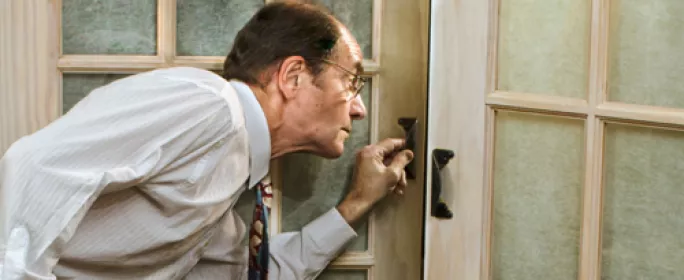Scrapping lesson observations from school inspections would be ‘absurd’, says Ofsted
Lesson observations will not be scrapped under Ofsted’s overhaul of inspections, Sir Michael Wilshaw has insisted.
The chief inspector told the annual conference of the Association of School and College Leaders (ASCL) that the proposal to stop observing teaching, made this week by think-tank Policy Exchange, was “absurd”.
He also admitted that the watchdog would have to hire a “substantial number” of new inspectors, as part of its move to phase out the 3,500 inspectors it currently hires from private companies, and replace them with Her Majesty’s Inspectors (HMIs) contracted directly to Ofsted.
The move, he told delegates in Birmingham, would help “eradicate inconsistencies” between inspection teams.
Sir Michael also said that it was “only fair” for the watchdog to inspect academy chains, which it does not currently have the power to do.
Under the proposals announced today, schools rated good would receive a one-day visit from inspectors every two years. At present, they are subjected to a full inspection every five years. Sir Michael said that there was “little point” in the exercise, apart from for schools on the cusp of achieving outstanding.
He said the changes would “probably” come into effect in September 2015, unless they could be enacted sooner.
Education secretary Michael Gove, who also appeared at the conference, signalled his backing for the move. He said that it was right for Ofsted to concentrate on “schools that really do need help”. It was, he told interviewer David Aaronovitch, time for the inspectorate to “step back” from regular full inspections of good schools.
Ahead of his speech, Sir Michael said he did not support Policy Exchange’s view that inspectors would be “better off flipping a coin” than judging a lesson on brief observations, which were neither “valid nor reliable”.
“We’re committed to classroom observations,” Sir Michael said. “It’s not sensible not to see what’s happening in a classroom and it’s not sensible to not see what is the most important activity in school - the engagement between teacher and children. So we will continue to observe lessons.”
Teaching, he told delegates, was “central to the life of the school, central to your leadership, and central to Ofsted’s judgement about a school. Progress and outcomes depend on it. It would be absurd, therefore, to think that we could inspect without gathering evidence about the quality of teaching.”
Addressing criticisms that inspectors only observe around 20 minutes of a lesson, Sir Michael added: “It doesn’t take that long to see whether the teacher is in charge or whether the children are. It doesn’t take that long to check whether youngsters are learning in a bright, stimulating and orderly environment.
“It doesn’t take that long to check whether the children are arriving on time and that lessons start promptly. It doesn’t take that long to check whether the books are graffiti-free and well marked, and that homework is routinely given.”
Sir Michael insisted that there was “little evidence” that the consistency of inspection teams had got worse, and said that there had been a drop in complaints in the last year.
Those additional inspectors currently working for external providers who were “doing a great job” would be encouraged to become HMIs working for Ofsted, he added.
Ahead of the start of the conference, ASCL president Ian Bauckham said that he expected next week’s one-day strike by the NUT would cause “widespread” disruption in schools.
However, Mr Bauckham said that he opposed proposals from the Department for Education for schools to use parent volunteers to stay open during the industrial action. He said that relying on teams of volunteers would leave him with more “sleepless nights” than the strike itself.
Keep reading for just £1 per month
You've reached your limit of free articles this month. Subscribe for £1 per month for three months and get:
- Unlimited access to all Tes magazine content
- Exclusive subscriber-only stories
- Award-winning email newsletters




